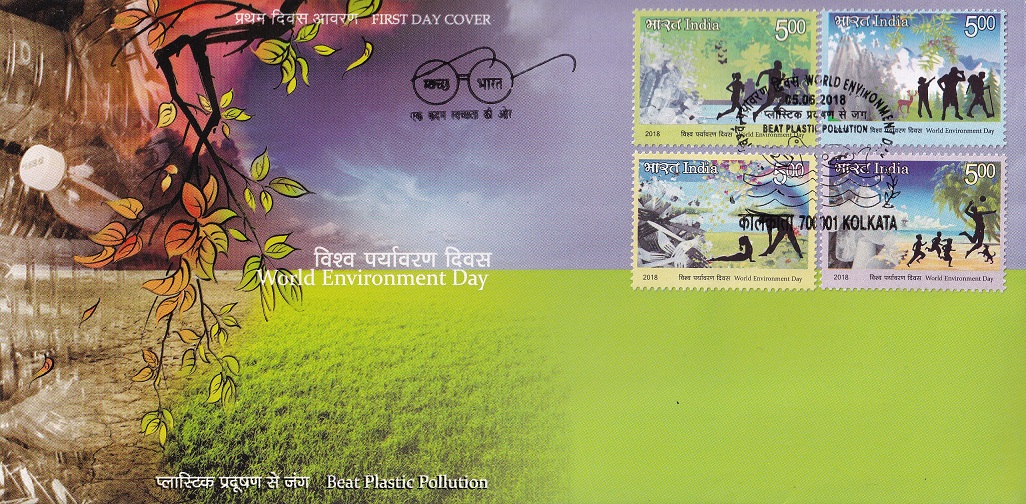
India on World Environment Day 2018
Complete set of 4 nos. of commemorative postage stamps on the World Environment Day (WED), over the theme of “Beat Plastic Pollution” :
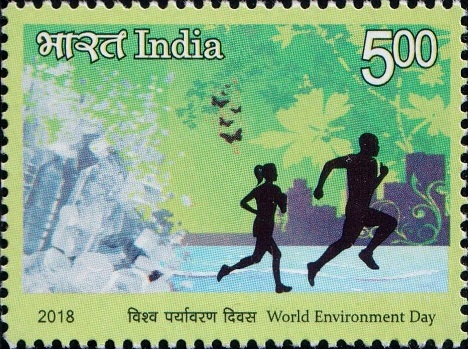
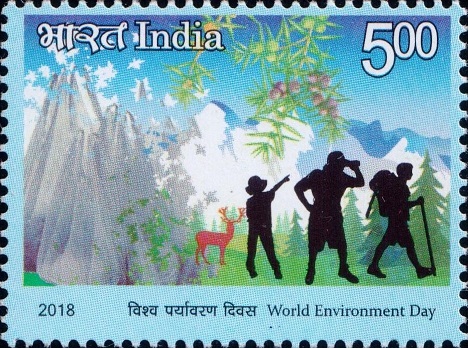
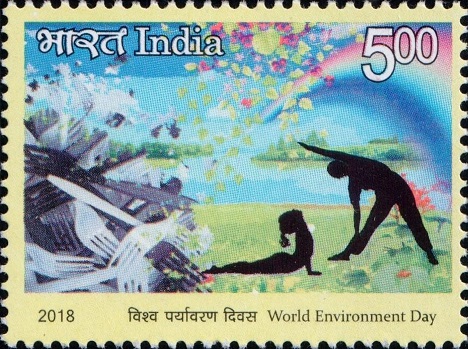
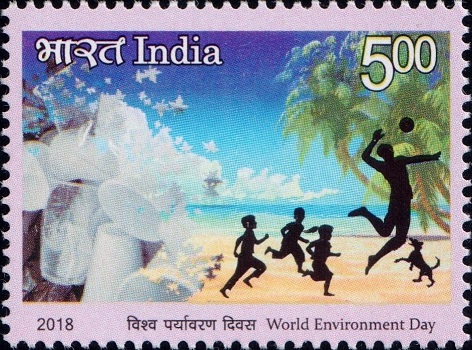

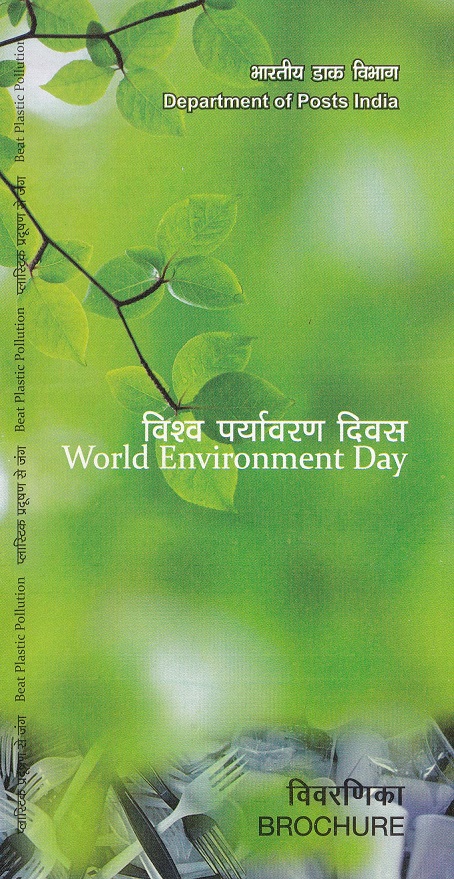 Issued by India
Issued by India
Issued on Jun 5, 2018
Issued for : Department of Posts is pleased to issue a set of four Commemorative Postage Stamps on the theme “Beat Plastic Pollution” on the occasion of World Environment Day.
Credits :
Stamps/Miniature Sheet/First Day Cover/Brochure : Shri Suresh Kumar
Cancellation Cachet : Smt. Alka Sharma
Type : Stamps, Mint Condition
Colour : Multi Colour
Denomination : 500 Paise (4)
Stamps Printed (4 Types) : 6.0 Lakh each
Miniature Sheet Printed : 1.1 Lakh
Printing Process : Wet Offset
Printer : Security Printing Press, Hyderabad
About :
- World Environment Day, which is celebrated every year on 5th June, is the United Nations’ principal vehicle for encouraging worldwide awareness and action for the environment. Over the years it has grown to be a broad, global platform for public outreach that is widely celebrated by stakeholders in over 150 countries each year. The day has become a vital forum for promoting progress on the environmental dimensions of the Sustainable Development Goals.
- The observance of World Environment Day began in 1974. The activities began rotating through different host countries and cities in 1987, Kenya being the first country to host in 1987. India hosted World Environment Day in the year 2011 when the theme was “Forest: Nature at Your Service”. India is the global host for celebrating World Environment Day, 2018 as offered by UN Environment and the theme for World Environment Day, 2018 is “Plastic Pollution” which is one of the most challenging environmental concerns today.
- Plastic is durable, versatile and cheap yet degrades slowly. Plastic pollution involves the accumulation of plastic products in the environment that adversely affects wildlife, wildlife habitat and humans. Plastic pollution can unfavourably affect lands, waterways and oceans. Rapid urbanization has contributed to the problem of growing waste generation and its disposal. Plastic waste and bags, if not collected systematically, choke drainage system and create unhygienic conditions; animals ingest plastic bags with the discarded food leading to their illness and sometimes death; the plastic waste when disposed of on soil reduces recharging of ground water aquifers; and when disposed of in landfill sites causes leaching of metals and additives into the soil and ground water. Plastic fragmentation produces micro-plastics which can be taken up by microorganisms. The problem of marine debris is also related to safety of beaches which attract millions of tourists all along the coast. Because of its continued and growing adverse impact, action is essential now from multiple directions to beat plastic pollution.
- India is committed to the theme of World Environment Day 2018 i.e. ‘Plastic Pollution’. In order to tackle the issue of waste management in India, the Ministry of Environment, Forest and Climate Change, Government of India has notified the Plastic Waste Management (PWM) Rules, 2016. Some of the salient features of these rules include increasing the minimum thickness of plastic carry bags from 40 to 50 microns; mandatory registration of manufacturers of plastic carry bags with State Pollution Control Boards; making waste generators including individual, bulk generators like offices, commercial establishments, industries, event organisers responsible for source segregation of the plastic waste and handing over of segregated waste; payment of user fee as per bye-laws of the local bodies; establishment of collect back system of plastic waste by the producers / brand owners as per Extended Producers Responsibility, etc.
- In addition to legislation, the movement towards sustainable lifestyle requires multiple actions and creative approaches. Firstly, awareness among citizens especially, targeting youth and children as agents of change can make a transformational impact. Secondly, there is a need for developing solutions whereby non-recyclable plastic can be reutilized as secondary raw material for development of newer products with use of efficient technologies and skilling informal sector. The non-recyclable combustible fractions can also be converted to refuse-derived-fuel (RDF) and can be used as alternative fuel in cement plants.
- Environment is our collective responsibility and we need to move together with everyone to solve environmental problems. We must realize the concern and make collective efforts to reduce our plastic footprint. At the same time, the per capita consumption of plastic needs to be curtailed and this is the right time for us to plan for the future so that the single use of plastic may be safe for human and other living organisms.
- Text : Based on the information received from Ministry of Environment, Forest and Climate Change, Government of India.




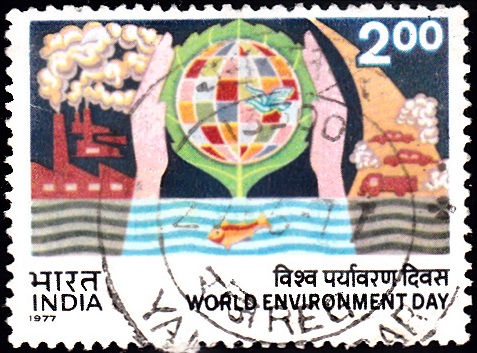
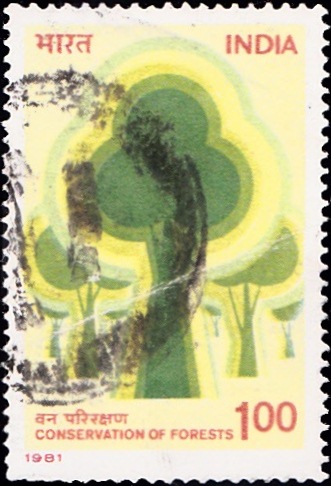
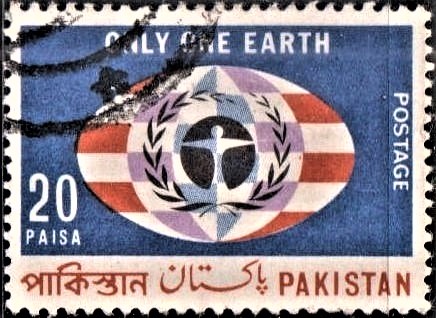

[…] For World Environment Day (5th June 2018), the Dept. of Posts released a set of four commemorative stamps on the theme, ‘beat plastic pollution’. Image credits: istampgallery.com […]